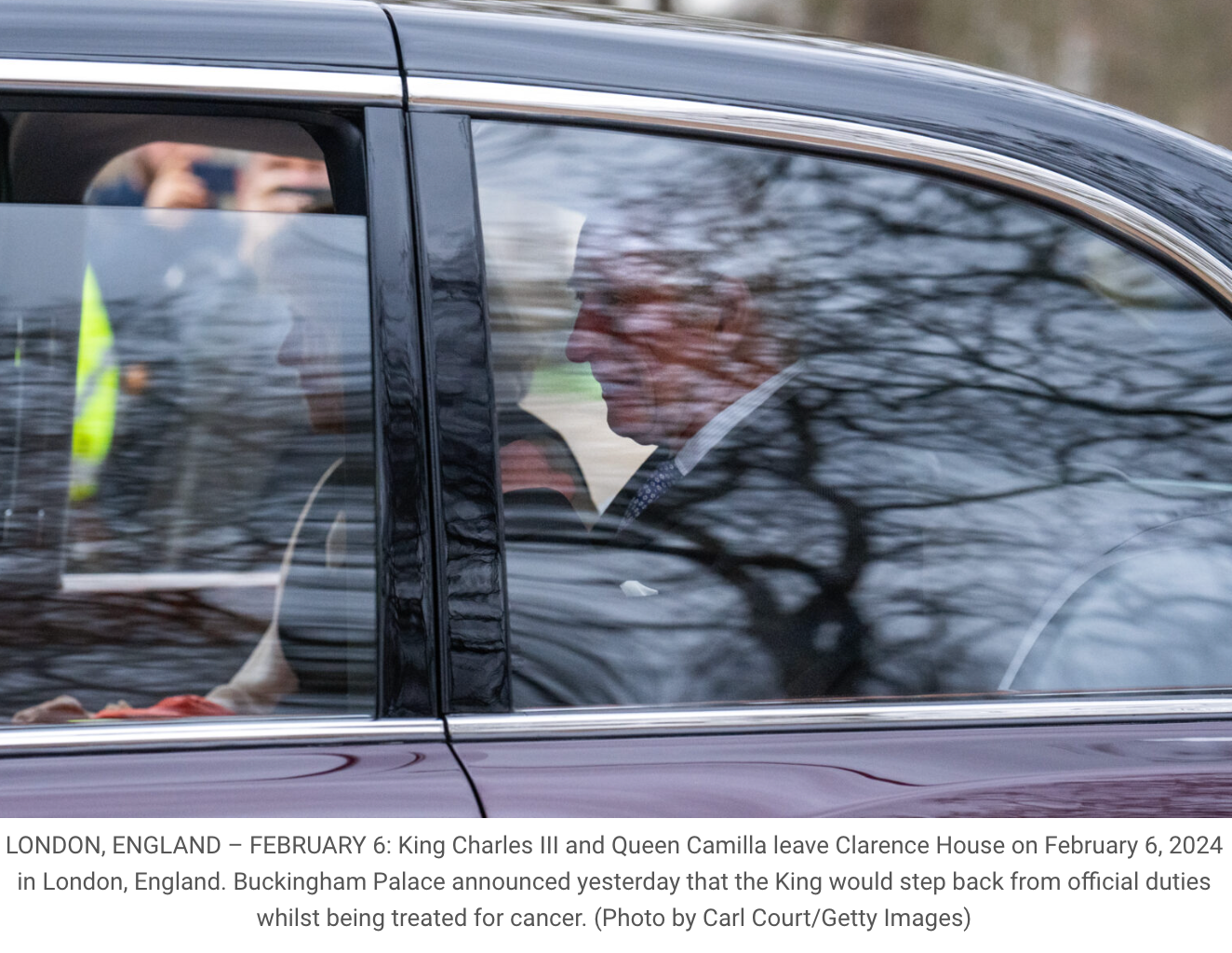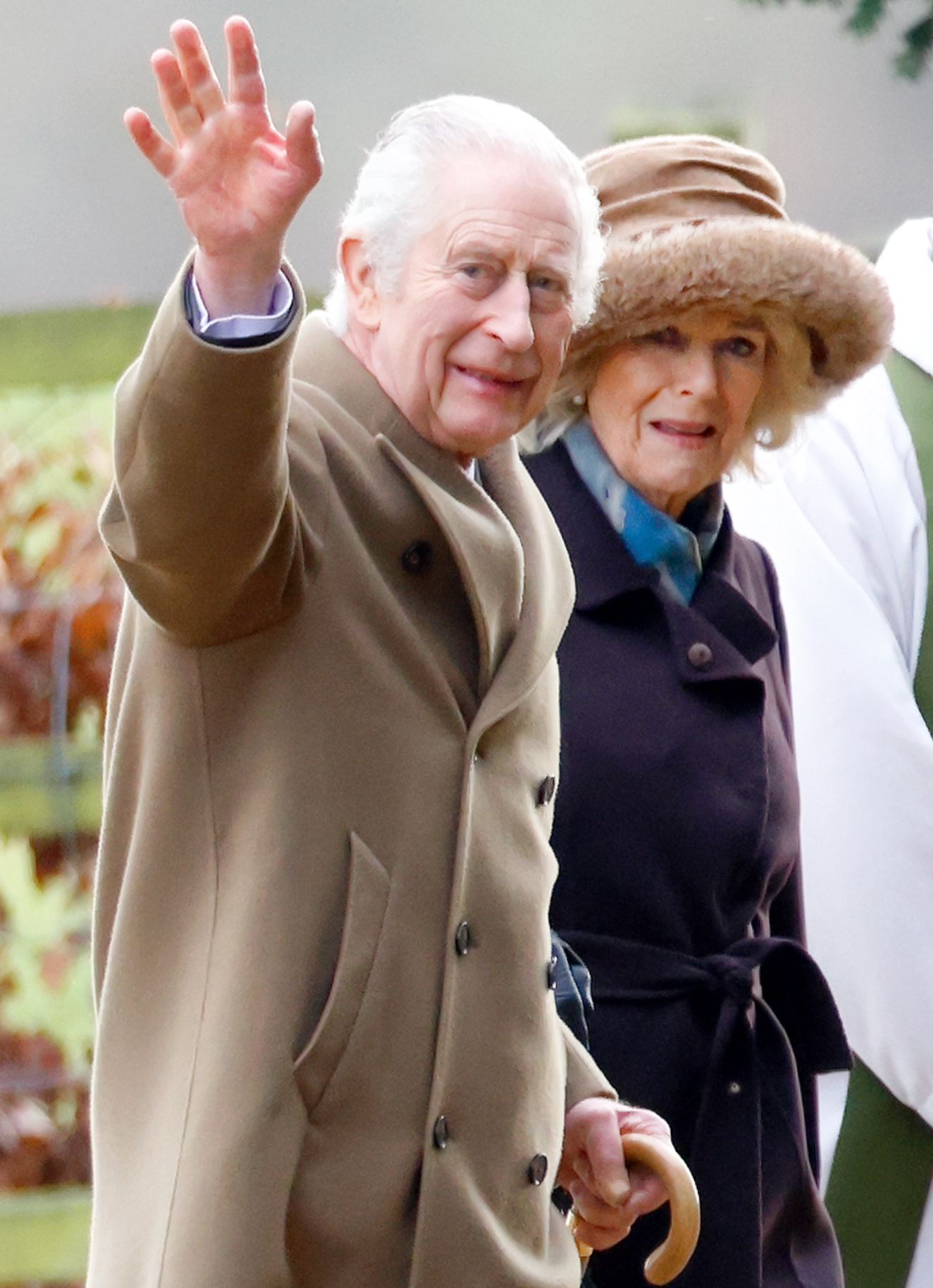King Charles takes helicopter to Sandringham after heartbreaking cancer diagnosis
King Charles has journeyed to the royal estate of Sandringham to undergo further treatment and recuperation away from public scrutiny following his cancer diagnosis.
Just this week, it was disclosed that the 75-year-old monarch had received the diagnosis following a procedure for an enlarged prostate.
Specifics regarding Charles’ cancer type and its stage remain undisclosed to the public, although Buckingham Palace has clarified that it is not prostate cancer.

In typical Royal Family fashion, information concerning Charles’ health concerns is limited. However, Prince Harry returned to the UK on Tuesday for a private meeting with his father, marking their first face-to-face encounter since Queen Elizabeth’s passing. The King is reported to have personally informed his closest relatives about his diagnosis.
Earlier this week, Charles and Queen Camilla were spotted departing Clarence House in London via helicopter bound for Norfolk, marking their first public appearance since the cancer announcement.
Sources indicate that the helicopter touched down at the royal Sandringham estate—traditionally a Christmas retreat for the Royal Family—on Tuesday afternoon, following Charles’ conversation with Harry.

Treatment for his cancer has reportedly commenced, with sources suggesting he remains in good spirits.
Nonetheless, there is speculation that Charles may scale back his official duties and public appearances during his treatment period.
Robert Hardman, author of Charles III: New King. New Court. The Inside Story, remarked to BBC Radio 4’s Today program: “I would imagine we probably won’t see him at Westminster Abbey now… the day-to-day functioning of the monarchy will not be significantly impacted.”
Despite reassurances from Buckingham Palace, recent reports have raised concerns.
Medical experts cited by Radar Online suggest that Charles’ cancer may be located near his prostate, potentially affecting his liver, stomach, or lung.
New York Internist Dr. Stuart Fischer noted: “You die with prostate cancer, not of it, according to most current studies… If the cancer was found in the lung and liver… his life expectancy will be a couple of years – if he’s lucky.”
In any case, we extend our support to King Charles during this challenging period and wish him a swift recovery.
